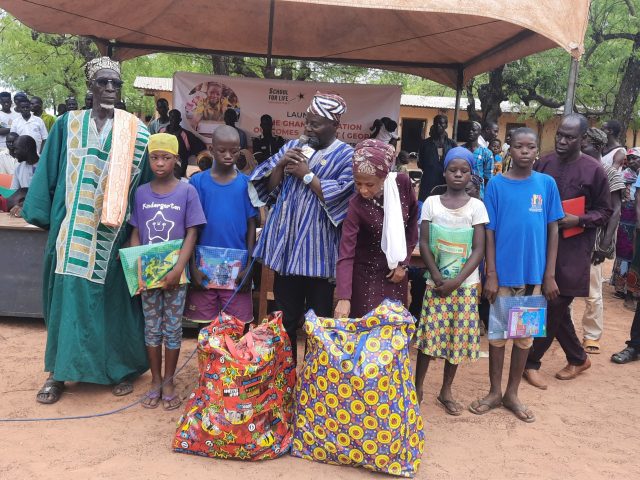A total of 6,000 out-of-school children aged eight to 16 years in 10 districts in the Northern and Oti Regions have begun classes under the Alternative Learning Programme (ALP) to facilitate their enrolment into the formal school system.
Out of the figure, 3,000 are in the Nanton, Savelugu, Kumbungu, and Tolon Districts of the Northern Region while the remaining 3,000 are in the Krachi East, Krachi West, Krachi Nchumuru, Nkwanta North, Nkwanta South and Biakoye Districts of the Oti Region.
They are undergoing six months of classes to acquire basic literacy and numeracy skills in their mother-tongues to enable them to enrol in the formal school system at the beginning of the 2023/2024 academic year.
This is in line with the Ghana Education Outcome Project (GEOP) of the Ghana Accountability for Learning Outcomes Project (GALOP), which is being implemented by School for Life, an NGO, through the School for Life-Rising Education Outcomes Partnership with support from Bridges Fund Partnerships.
The Ministry of Education, supported by the World Bank and the Education Outcomes Fund, has designed the project to among others support out-of-school children in districts, which have the highest number of out-of-school children to transition into mainstream primary education, and to improve learning in mainstream schools targeting literacy and numeracy improvements at the end of primary grades two and four.
Madam Wedad Sayibu, Director of School for Life, speaking during the zonal launch of, “My First Day in ALP Class” at Yoguu in the Tolon District to mark the formal beginning of classes for the beneficiaries under the project, said for the 2023/2024 academic year, 48 per cent of the children were girls whilst the remaining 52% were boys.
The children/learners were grouped into classes of about 25 children and offered three to four hours of tuition a day at a time that was appropriate for each community.
Each of the children was given teaching and learning materials including drawing pads, crayon, pencils amongst others to aid their studies.
The classes are led by facilitators who are volunteers from communities where the classes are established, and the language of instruction is the mother tongue or play language of the participating community.
Madam Sayibu said, “In the next four years (2023-2027), School for Life will offer an alternative learning programme to 18,000 out-of-school children in the Northern and Oti Regions and transition them into mainstream schools whilst providing support for their retention in mainstream school.”
Mr Fuseini Salifu Issifu, Tolon District Chief Executive said there were a lot of out-of-school children in the district lauding the project saying, “With this project, these children are going to catch up with their peers and very soon, we will see them joining the mainstream school.”
He told community members including chiefs and parents that they had a role to play to ensure success of the project expressing need for them to always remind the children to go for the classes.
Mr Alhassan Alidu Junior, Acting Northern Regional Director of Education said the project was important to ensure that all children of school going age were in school advising the beneficiary communities and parents to own the project and always release the children to come for the classes.









![Mr Logic signs two dancehall artistes unto his Red Panther record label [Video]](https://ghananewss.com/storage/2023/05/Mr-Logic-signs--100x75.jpeg)






